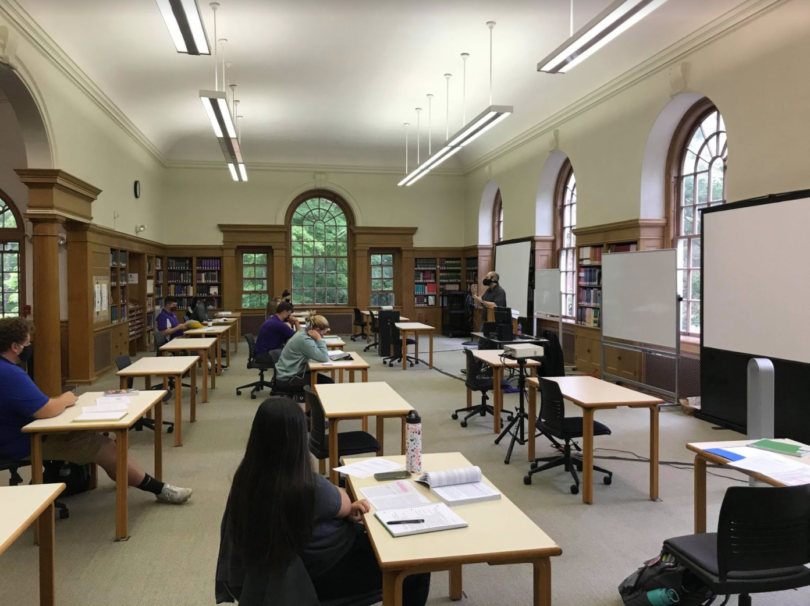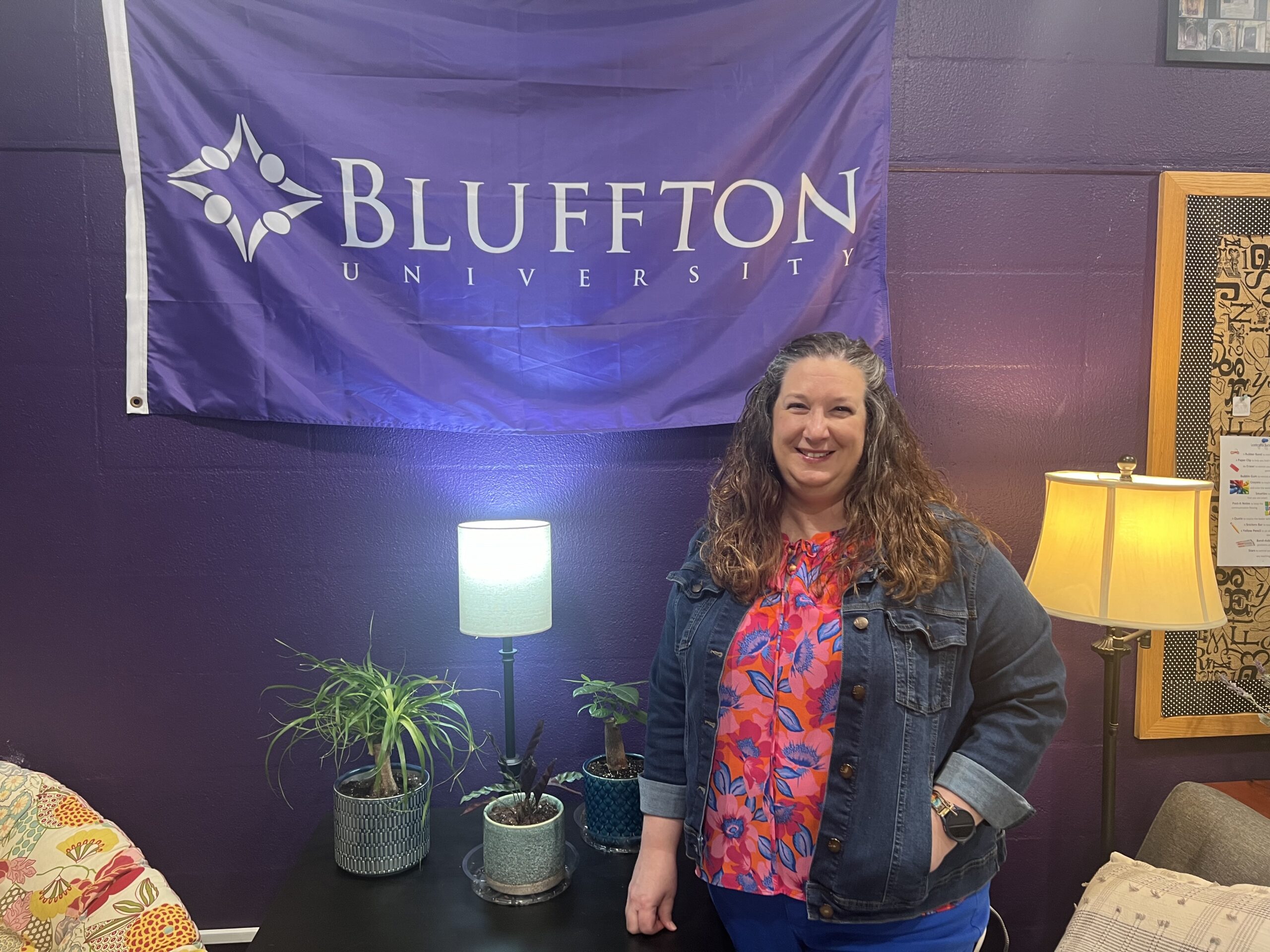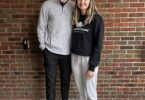The coronavirus pandemic has been impacting the education of students for eight months. Students and professors are dealing with the changes and uncertainty the best they can. As a result, changes in teaching rose to fruition as well as the changes with being in a physical space.
To meet in-person, students and staff are spread out to maintain a six-foot distance between one another, wear masks and clean their desk areas before sitting down for the day. Not being near one another and wearing a mask challenges both professors and students to be louder in order to communicate in the classroom.
Lamar Nisly, vice president and dean of Academic Affairs at Bluffton University, watches over the development and assessment of faculty on campus.
In conjunction with Nisly’s official title, he is also available some semesters to teach. He isn’t currently teaching this semester but will teach a Survey of Literature course in the spring. He is interested in the communication aspect of this course when next semester comes.

Lamar Nisly. Photo provided by Bluffton University.
“I want to think really carefully of what it’s going to look like to try to have students engage together with the text and how that is going to be possible,” said Nisly. “I have a thought of trying to have students with preset small groups and they will meet over Zoom or Facetime to have a small group experience within the classroom.”
When talking to faculty, Nisly tries to convey to faculty the importance of being gracious to both the students in their classes and themselves since the situation at hand is less than ideal. In the effort of being kind, Nisly also brings up the importance of holding students accountable for their work amidst the pandemic going on.
Nisly said being too flexible with deadlines doesn’t always work out in a positive way since there would be no structure for the student to follow, but professors need to be aware and understand of the issues students are facing in and out of schooling.
A major challenge facing students and professors is the possibility of students being placed in and out of quarantine due to either a positive test result or contact tracing. To help combat this, when professors are teaching class and there are students who are in quarantine, a Zoom option is offered for those who aren’t able to be physically present.
Deanna Barthlow-Potkanowicz, associate professor of psychology, has adapted to the challenges this pandemic has brought to the teaching scene.
Barthlow-Potkanowicz made a change of removing a large project form one of her courses and instead replaced it with multiple smaller projects so it is more manageable and timely for students. Along with this, Barthlow-Potkanowicz often repeats directions multiple times and in multiple ways so students present physically and on Zoom can hear her.
Barthlow-Potkanowicz said some of the challenges she and the other professors have been dealing with have been holding students responsible for work during this difficult time and trying to be there to support the range of students present. Every student is handling everything going on in different ways.
“In a way, I think all of the professors, the coaches and the staff have become sort of like ‘mini counselors’ or ‘mini case-managers’,” said Barthlow-Potkanowicz. “We are trying to balance still helping students learn and still holding students accountable but also giving them some grace for what is going on. I think striking that balance is really hard.”
She said she thinks all instructors are making history because they are all being asked to adapt quickly to an ever-changing situation. Barthlow-Potkanowicz said how education isn’t a fast-moving system, but it is expected for everything to change quickly to a non-static situation.
Barthlow-Potkanowicz has been telling her students to work with what is in front of them and how it doesn’t help to focus on what they can’t do. Instead, she said for her students to focus on what they do have and make the best of the situation we are all in.
Nisly encouraged students to communicate with their faculty members or himself about what has been going well this semester as well as what has been challenging. Doing this will help the university continue to grow and improve during this difficult time.
“I want to communicate how impressed and grateful I am for the ways that they [professors] are leaning into the really incredible challenges that this semester brings,” said Nisly.







